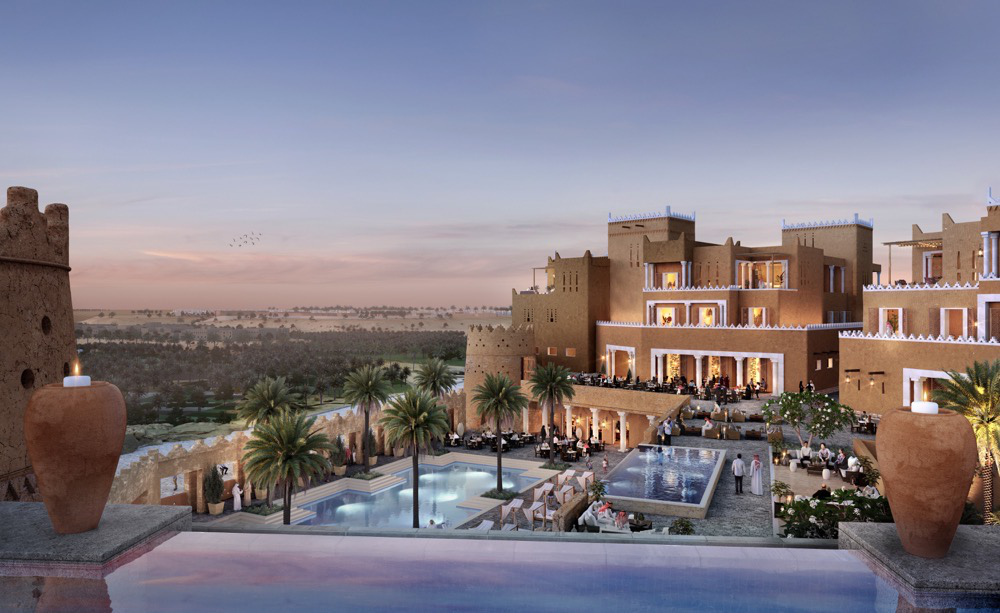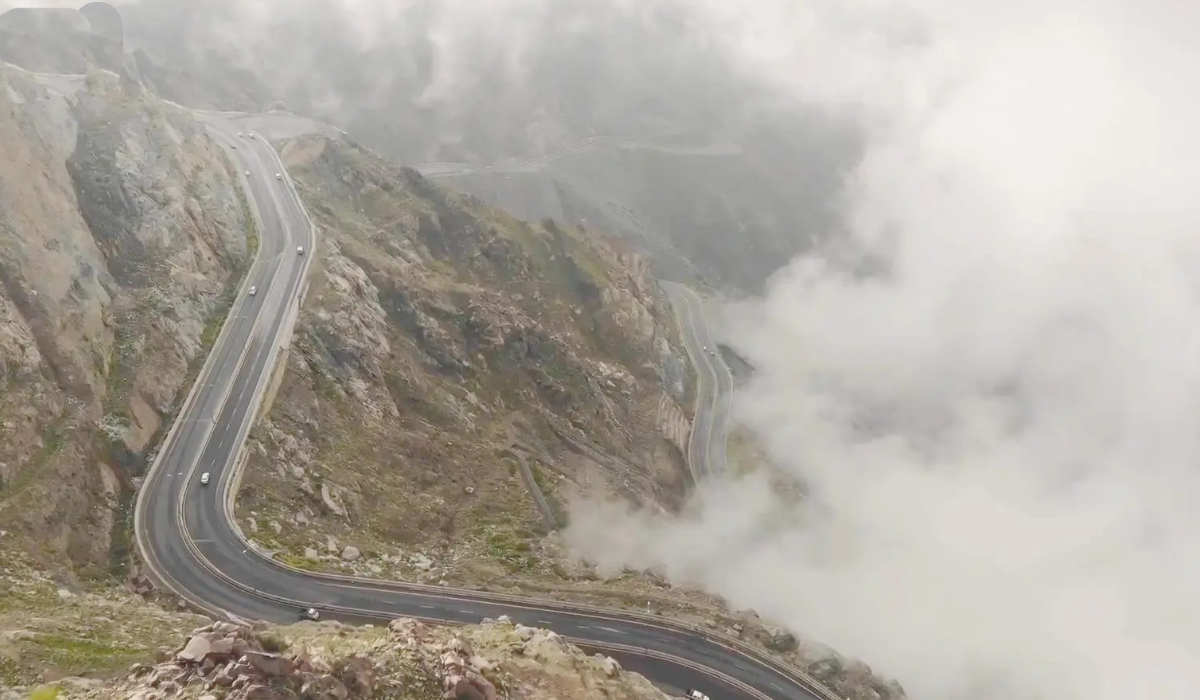RIYADH: Since it fully opened its borders to visitors, launched a flexible e-visa system, and began developing a wide range of luxury, heritage and adventure-holiday attractions, Saudi Arabia has reinvented itself in just a few short years into a major emerging tourism market.
The Kingdom is therefore seen by many as the natural choice to host a number of events to mark World Tourism Day 2023, an international day (Sept. 27) that was established by the UN World Tourism Organization (UNWTO) to celebrate the power of the sector to help bridge cultures.
This year’s meetings and discussions, which will be hosted by Riyadh on Sept. 27 and 28, will address the challenges and opportunities for the industry, under the organization’s core themes of “people, planet and prosperity.”
Saudi Arabia is chairing the organization’s executive council this year, and Riyadh is home to its first regional office in the Middle East, which positions the Kingdom as an important ambassador for tourism in the region.

Saudi Arabia opened its borders more widely to foreign tourists in 2019 and introduced its e-visa system. (Royal Commission for Alula)
More than 500 government officials will join experts and industry leaders from 120 countries at the events, which will examine the ways in which the sector is recovering from the economic blows of the COVID-19 pandemic, and responding to calls for greater environmental and social sustainability.
“We have a historic opportunity to chart a new course for the global tourism sector, centered on sustainable development, job creation and economic resilience,” said Ahmed Al-Khateeb, the Saudi minister of tourism.
“Tourism — as a catalyst for change — fosters mutual understanding, builds bridges, and safeguards cultural heritage and environmental conservation, contributing to a more harmonious world.
“World Tourism Day 2023 is an important platform for the world to celebrate the sector’s successes and explore solutions to its challenges. Saudi Arabia is honored to host this esteemed occasion and we look forward to welcoming tourism leaders from the public and private sectors to Riyadh.”
According to organizers, this year’s event is set to be the biggest and most impactful World Tourism Day in the 43-year history of the event.
In addition to Al-Khateeb, other speakers will include UNWTO Secretary-General Zurab Pololikashvili, Saudi Minister of Investment Khalid Al-Falih, Vice Minister of Tourism Princess Haifa bint Mohammed, Spain’s Secretary of State for Industry, Trade and Tourism Rosa Ana Morillo Rodriguez, South Africa’s Minister of Tourism Patricia de Lille, Croatia’s Minister of Tourism and Sports Nikolina Brnjac, and Turkiye’s Minister of Culture and Tourism Mehmet Ersoy.

The Kingdom’s Ministry of Tourism was established in 2020 to bring the sector to the forefront of the Vision 2030 agenda. (SPA)
The list of speakers also includes Pansy Ho, the secretary-general of the Global Tourism Economy Forum, and the CEOs of a number of companies and organizations, including Ibrahim Koshy of Saudi Arabian Airlines, Pierfrancesco Vago of MSC Cruises, Greg Webb of Travelport, Ritesh Agarwal of OYO, Julia Simpson of the World Travel and Tourism Council, and Matthew Upchurch of Virtuoso.
“This World Tourism Day, we focus on the vital need to invest in building a more sustainable sector for people, planet and prosperity,” said Pololikashvili.
“The day also makes clear why UNWTO underscores the need for investment in education and for greater innovation as the foundations for long-term growth and transformation. This year’s official celebration in Saudi Arabia reflects how tourism is being embraced to diversify economies and generate opportunities for all.”
The rapidly growing Saudi tourism industry is driven by the government’s Vision 2030 social reform and economic diversification agenda. The sector is expected to account for 10 percent of the Kingdom’s gross domestic product by 2030, creating 1.6 million jobs.

More than 500 government officials will join experts and industry leaders from 120 countries at World Tourism Day 2023 events. (Diriyah)
Tourism is one of the biggest drivers of economic growth worldwide and is forecast to contribute $9.5 trillion to global GDP this year alone, according to the World Travel and Tourism Council.
This is in line with UNWTO forecasts that tourism is on track to recover to between 80 and 95 percent of pre-pandemic levels this year, and to exceed 2019 levels in 2024.
This is very good news for national economies in both traditional and emerging tourism markets, as the sector not only provides a wealth of employment and business opportunities, it also plays an important soft-power role in promoting cross-cultural understanding.
“Tourism is a powerful force for progress and mutual understanding,” said Antonio Guterres, the UN secretary-general. “But to deliver its full benefits, this force must be protected and nurtured.
“On this World Tourism Day, we recognize the vital need for green investments to build a tourism sector that delivers for people and planet. So let us all do more to harness the full potential of sustainable tourism. Because investing in sustainable tourism is investing in a better future for all.”
FASTFACTS
• Riyadh hosted World Tourism Day for the first time in 2019.
• Kingdom chairs UN World Tourism Organization this year and hosts its Middle East HQ.
The two-day event in Riyadh will focus on three subthemes: mutual understanding, economic sustainability and social prosperity.
Day one, during which delegates will explore “Tourism and Green Investments,” will include panels on the power of tourism in building bridges, investing in human capabilities, the potential of less-visited destinations, the challenges in achieving a sustainable future and the potential solutions, bridging the innovation gap, and powering entrepreneurship.
In the evening, Saudi Arabia’s UNESCO World Heritage Site of Diriyah, north of Riyadh, will host a gala dinner in celebration of World Tourism Day.
The second day will include the “Tourism Leaders Forum,” under the theme “Tourism for People, Prosperity and Intercultural Dialogue,” and a session focusing on the public-sector that will explore options for a sustainable and green future for the industry.
In addition, a private-sector session will look at “seamless end-to-end travel,” with a view to developing the infrastructure, legislation and services needed for mass-transit networks worldwide that promote ease and comfort of travel.

Investment in tourism and infrastructure in Saudi Arabia has grown rapidly. (Shutterstock)
There will also be a handover session during which Saudi Arabia will pass the baton to next year’s host nation, Georgia.
The wider aim of the event, organizers say, is to foster global collaborations, explore opportunities, strengthen the resilience of the tourism sector, and work toward an investment-led and sustainably focused future for the industry.
Delegates will have the opportunity to explore innovative approaches to tourism, consider success stories and best practices that integrate tourism with green investment, and learn how the sector can be promoted as a means of bridging cultures.
Investment in tourism and infrastructure in Saudi Arabia has grown rapidly since the country opened its borders more widely to foreign tourists in 2019 and introduced its e-visa system.
The Kingdom’s Ministry of Tourism was established in 2020 to bring the sector to the forefront of the Vision 2030 agenda, with the aim of creating 1 million jobs for citizens, and enabling and accelerating sustainable growth through future-focused policies.

“We have a historic opportunity to chart a new course for the global tourism sector,” said Ahmed Al-Khateeb, the Saudi minister of tourism. (AFP)
Authorities in the Kingdom say that, guided by data, they are pursuing investments and talent-development programs to attract industry-leading partners. They have set a target of welcoming 100 million foreign visitors by 2030 and boosting the contribution of the sector to GDP from 3 percent to 10 percent during that time.
Tourism projects are under development or construction in several parts of the country, including a chain of luxury resorts along the country’s western coast known as the Red Sea project, and the island of Umluj, which is known as “the Maldives of Saudi Arabia” thanks to its crystal-clear waters and white sand beaches.
Other areas being targeted include the mountainous Asir region, a prime location for outdoor sports and adventure activities, and the ancient desert region of AlUla, site of many archaeological treasures including the UNESCO World Heritage site of Hegra and the “Journey Through Time” master plan, a living, breathing museum and cultural-heritage hub.
On Monday, Saudi Crown Prince Mohammed bin Salman launched the masterplan to develop a new project in Soudah to present a new face of luxury mountain tourism. Soudah Peaks will see a luxury mountain tourism destination set 3,015 meters being created above sea level on Saudi Arabia’s highest peak.
The project will be executed by Soudah Development, a company owned by Public Investment Fund, Saudi Arabia’s sovereign wealth fund, that is driving the development of Soudah and parts of Rijal Almaa in Asir.

Tourism is one of the biggest drivers of economic growth worldwide and is forecast to contribute $9.5 trillion to global GDP this year alone. (SPA)
The growing investment in tourism and the resulting increase in visitors is good news for key players in the Saudi hospitality industry, who have been working to expand their offerings to meet booming demand for accommodation, dining, activities and relaxation.
“The Kingdom’s identity as the heart of the Arab and Islamic worlds, its leading investment capabilities, and its strategic geographical position all play a significant role in supporting Saudi Arabia on its journey to become a global tourism destination,” Richard Johnson, the general manager of Al-Faisaliah Hotel in Riyadh, told Arab News.
“World Tourism Day, held in Riyadh, will offer a prime opportunity to showcase the Kingdom’s progress to this end, where travel and tourism industry leaders from around the world will gather and witness how the nation proactively connects Saudis with the world, builds bridges between cultures, nurtures hospitality talent, and creates investment opportunities for the international community.”











































